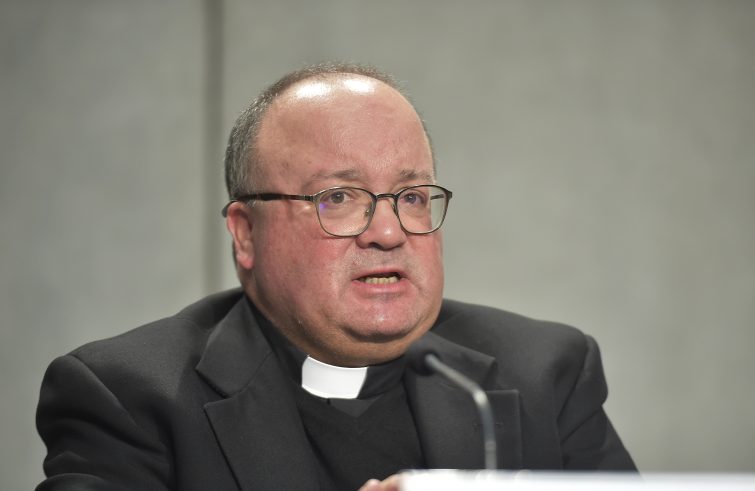
“It was a heart heartfelt decision, taken by the Holy See, by the Church of Malta and by the State of the Republic of Malta, in the hope of experiencing the joy of welcoming the Holy Father here in the best and most appropriate time.” Msgr. Charles J. Scicluna, Archbishop of Malta, thus commented to SIR the cancellation of the visit of Pope Francis to Malta and Gozo, scheduled for May 31 and postponed to a date to be set owing to the ongoing health emergency. “We are hungry and thirsty of togetherness”, Scicluna said with regard to the “fasting of hugs”, which will be especially significant when this “early and prolonged Good Friday” comes to an end.
How was the news of the cancellation of the Holy Father’s visit to Malta received?
With a great sense of realism. The present situation does not allow a papal journey at this delicate and difficult time caused by the pandemic that is unfortunately spreading worldwide. We too have our own cases of Covid-19, and government authorities have imposed restrictions on us for the common good.
It was a heartfelt decision, taken by the Holy See, by the Church of Malta and by the State of the Republic of Malta, in the hope of experiencing the joy of welcoming the Holy Father here in the best and most appropriate time.
How are you facing the coronavirus emergency?
To date, March 23, we have 103 confirmed cases of coronavirus on our island. National authorities have imposed restrictions which we all support because we know that they are for the common good.
The bishops of Malta and Gozo have decided to close and not celebrate Mass in our parishes as early as two weeks ago to avoid the inflow of people still congregating in our churches. At the same time, we promptly set up a service to accompany the faithful through television, Internet and social media,
in the effort of accompanying our people, but also to ensure that they can participate in the liturgies that our priests celebrate in parishes, albeit from a distance. I must say that the response was very heartening and encouraging. Our parishioners also follow the Holy Father’s morning Mass at 7:00 a.m., pray the Rosary, and will participate in the initiatives proposed by Pope Francis in the coming days.
Also Malta will be present on March 25th for the recitation of the Lord’s Prayer with the Holy Father and all the heads of the Christian Churches and on March 27th, for the prayer recited by Francis overlooking the esplanade of St. Peter’s Basilica, in an empty square. In this Lenten period are we experiencing s the strength of prayer, which eliminates distances and helps overcome difficulties?
More than Lent,
the time – not only liturgical – that we are living is an early and prolonged Good Friday.
Good Friday comes when the Bridegroom is taken away from us, and the bishop also takes off the Ecclesiastical ring, because the Bridegroom is no with us, in the hope of the Resurrection. For our communities, for the Church – this extended fast – which is a fast of the Eucharist – is an early and prolonged Good Friday. But even in this tragic circumstance we must never lose our hope in the Resurrection.
The Pope recently said that when the pandemic is over recovery “will be like post-war rebuilding” . In your opinion, are people aware of the gravity and magnitude of the situation, and of its consequences for our future?
People have understood because they are afraid. And probably they also have the wisdom to be careful, to follow the directives imposed by the government. Here in Malta, for example, roads are empty, all non-essential businesses have closed down. Cinemas and cafés, theatres and restaurants are closed, and so are the churches.
It is a strange, unknown atmosphere, a sense of awareness that out there there is an invisible enemy to fight.
Unfortunately it’s equally important to keep the required distance.
We are experimenting a new way of staying close to each other,
not only spiritual but also technological, with phone calls to our loved ones or to those we know might be experiencing a moment of difficulty, or simply need a word of comfort.
In times of coronavirus we are beginning to understand that many things are not essential, although they appeared to be much more vital before. We are discovering what is essential: fasting from hugs makes hugs more important,
and when we will embrace each other again this gesture will acquire a whole new meaning.
We’re hungry and thirsty for each other,
and this is a great sign of hope in the fact that – when all this is over – we will discover a new way of being and perceiving each other, of taking care of ourselves and those around us.
We must never lose hope, but in our daily lives we must be guided by those who care about our life, our health and our safety. Compliance with the restrictions that are necessary at this time is a sign of hope, a sign that we are on the right path leading us towards the end of this pandemic.











